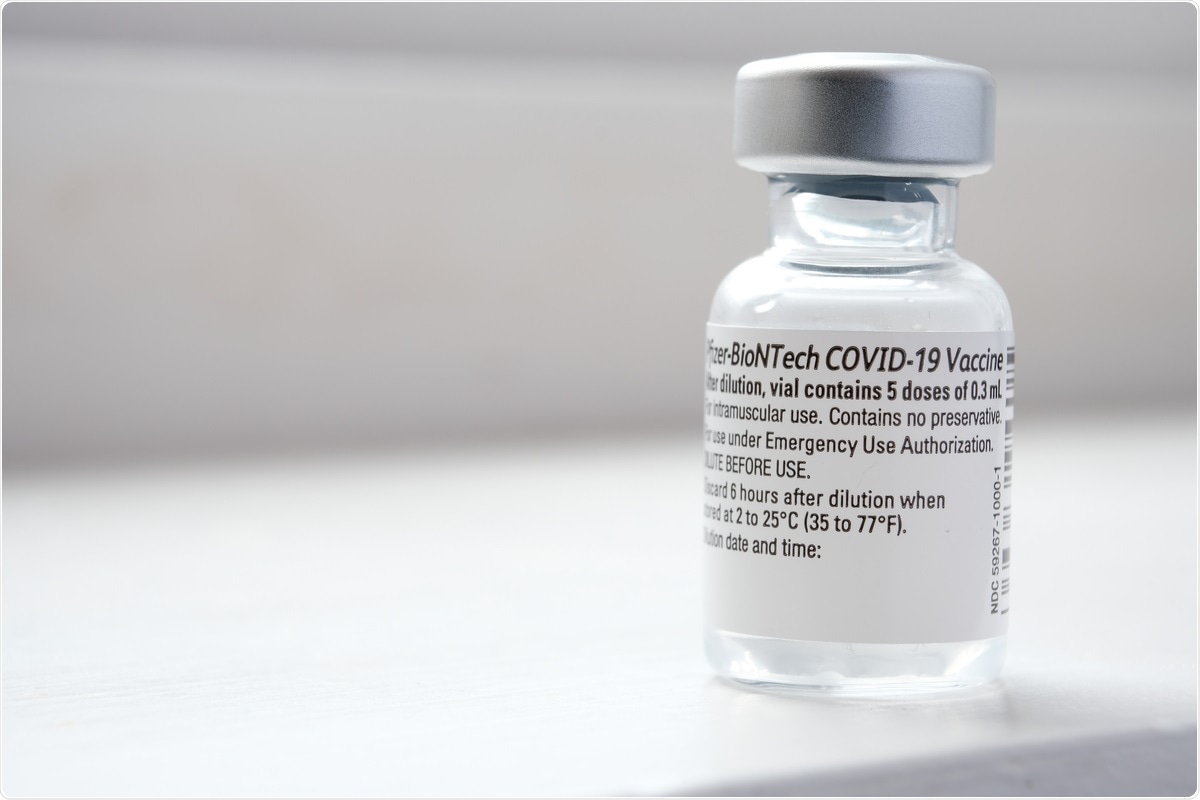The messenger RNA (mRNA) vaccines by Pfizer and Moderna were rolled out after emergency approvals from regulatory bodies for vaccinating adults to protect them from severe coronavirus disease (COVID19) and hospitalization due to infection with severe acute respiratory syndrome coronavirus (SARS-CoV-2).
The emergency approvals were considered upon release of safety data of these vaccines on adults. However, there was not enough real-world data to prove the efficacy of vaccines in children and adolescents <16 years in preventing severe infection. Hence, the vaccine was not recommended for this population thus far.
 Study: Effectiveness of Pfizer-BioNTech mRNA Vaccination Against COVID-19 Hospitalization Among Persons Aged 12–18 Years — United States, June–September 2021. Image Credit: mundissima/ Shutterstock
Study: Effectiveness of Pfizer-BioNTech mRNA Vaccination Against COVID-19 Hospitalization Among Persons Aged 12–18 Years — United States, June–September 2021. Image Credit: mundissima/ Shutterstock
As per data released by the World Health Organization (WHO), out of 7.2 billion people globally, 3 billion are below 25 years, and around 1.2 billion are adolescents. Therefore, considering a significant part of the population is adolescents, it is crucial to have a vaccine approved to effectively control the spread of the virus and prevent hospitalizations due to severe disease.
The Centres for Disease Control and Prevention (CDC) conducted a study to determine the vaccination efficacy (VE) in the adolescent population, published recently.
Study details
The study recruited children and adolescents aged 12–18 years in a real-world evaluation at 19 pediatric hospitals in the United States.
The study design assessed vaccine performance by comparing the odds of antecedent vaccination among laboratory-confirmed case patients hospitalized with COVID-19 and hospitalized controls without COVID-19.
Out of 572 eligible patients, 108 were excluded, including 56 who were partially vaccinated or who completed vaccination 0–13 days before illness onset, 20 who were hospitalized >14 days after illness onset, 14 case-patients who received a positive SARS-CoV-2 test result but were hospitalized for non–COVID-19 reasons, and 18 who were excluded for other reasons. The median age was 15 years, 72% had at least one underlying condition, including obesity, and 68% attended in-person school.
The study thus included fully vaccinated patients aged 12–18 years with COVID-19 vaccination status categorized as either unvaccinated (no receipt of any COVID-19 vaccine before illness onset) or fully vaccinated (received two doses of Pfizer-BioNTech vaccine, with the second dose administered ≥14 days before illness onset).
Hospitalized patients were symptomatic for COVID-19–like illness and had a positive SARS-CoV-2 reverse transcription-polymerase chain reaction (RT-PCR) or antigen test result. None of the patients were diagnosed with multisystem inflammatory syndrome in children (MIS-C) during their enrolment.
Control groups among hospitalized patients were categorized as patients with COVID-19 symptoms but negative SARS-CoV-2 RT-PCR or antigen test results (test-negative) and patients without COVID-19–associated symptoms who might or might not have received SARS-CoV-2 testing (syndrome-negative). In addition, information on their baseline demographic characteristics, clinical information about current illness, and SARS-CoV-2 testing history were obtained through parent or guardian interviews and review of electronic medical records.
Vaccination coverage was 3% among 179 patients with COVID19 and 33% among 285 controls. Overall, 77 (43%) COVID-19 patients were admitted to an intensive care unit, and 29 (16%) critically ill patients received life support during hospitalization, including invasive mechanical ventilation, vasoactive infusions, or extracorporeal membrane oxygenation. Unfortunately, two of these 29 critically ill patients (7%) died. All 77 case patients were admitted to the intensive care unit, all 29 critically ill patients, and both deaths occurred among unvaccinated case patients.
Among 169 COVID-19 patients with available hospital discharge data, the median length of hospital stay was five days for unvaccinated case patients and three days for vaccinated case patients. The VE against COVID-19 hospitalization was 93%, test-negative patients had a VE of 94%, and syndrome-negative patients had a VE of 92%.
The results were consistent among patients between 12-15 years and between 16-18 years. The results further matched previous trials wherein VE for Pfizer-BioNTech among patients aged 12–15 years was 100%, albeit without comparison to hospitalized patients with COVID-19.
Study implications
This study demonstrated that nearly all (97%) patients aged 12–18 years hospitalized with COVID-19 were unvaccinated (versus fully vaccinated) and reinforced the importance of vaccination to prevent severe COVID19 and hospitalizations.
This data encourages the use of mRNA vaccines among the adolescent population and can also help entail studies for other available vaccines in the future, whenever applicable.